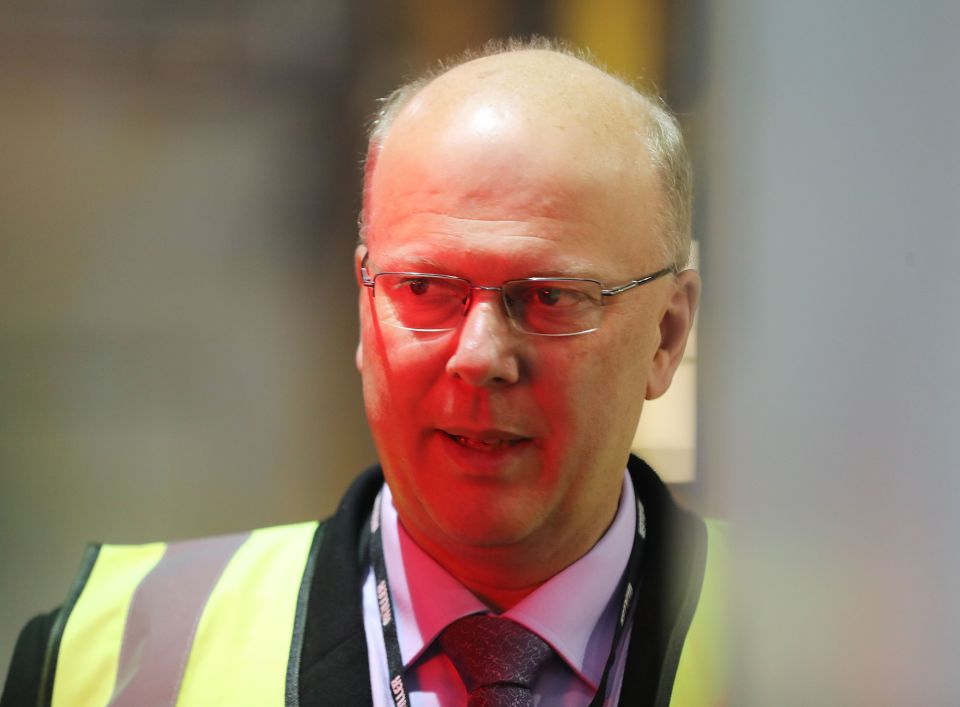Chris Grayling hints Government could BAN rail strikes after unions brought train services to a standstill

FURIOUS Transport Secretary Chris Grayling yesterday signalled the Government could BAN rail strikes after unions brought Southern train services to a complete standstill.
The Minister said he would “have a careful look at” the possibility of new legislation as the first of three days of action across 400 miles of track caused misery for 330,000 passengers.
This would go far beyond new powers promised in the Trade Union Act earlier this Spring.
Speaking yesterday morning Mr Grayling said he was powerless to order train drivers back to work.
Challenged by the BBC whether he would change the law, he said: “There’ll be a lot of things we’ll have to take a careful look at.”
Within hours, No.10 appeared to back the Minister. The PM’s official spokeswoman said new legislation was due to take effect which would introduce tougher thresholds for strike action.
But she added the success of this would be kept “under review”.
She said: “The Prime Minister has been very clear that she thinks this strike is unnecessary. She is focused on how it is affecting commuters and what can be done about that.”
Yesterday saw the worst rail disruption for London commuters in decades as all of Southern’s 2,242 weekday services were cancelled.
The company’s network covers 150 stations from Southampton to the Kent Coast and up to the capital.
Normally packed train stations such as Clapham Junction stood eerily empty last night with business chiefs warning the chaos could cost the economy tens of millions of pounds.
Fresh talks aimed at resolving the chaos will be held at the conciliation service ACAS on Wednesday.
But another 24-hour stoppage will still go ahead in protest at Southern’s plans to change the role of guards on its services across the south-east.
Mr Grayling blamed the RMT and Aslef unions for the “futile” action – saying no one is losing their job or facing a pay cut.
But Aslef and the RMT attacked the Government – saying Ministers had prevented Southern from negotiating properly.
The Conservative Party vowed to introduce new powers to ensure unions had a democratic mandate for industrial action in the 2015 Election manifesto.
The Trade Union Act 2016 will force unions to make sure 50 per cent of those entitled to vote in a ballot do actually vote.
And where those involved in the dispute work in an “important public service” such as rail there would be a further requirement that 40 per cent of those entitled to vote, vote ‘Yes’.
While the Act received Royal Assent in May the necessary legislation needed to introduce the law will not come before the Commons until the New Year.
Union insiders argue that both the Aslef and RMT action would have met the threshold.
Do we need anti-strike laws?
BETTER CALL PAUL with Paul Ross today from 9am on 0344 499 1000
Listen on DAB, via the talkRADIO app or online at
















